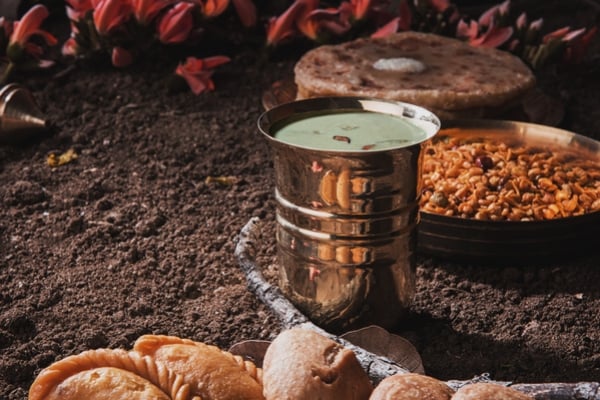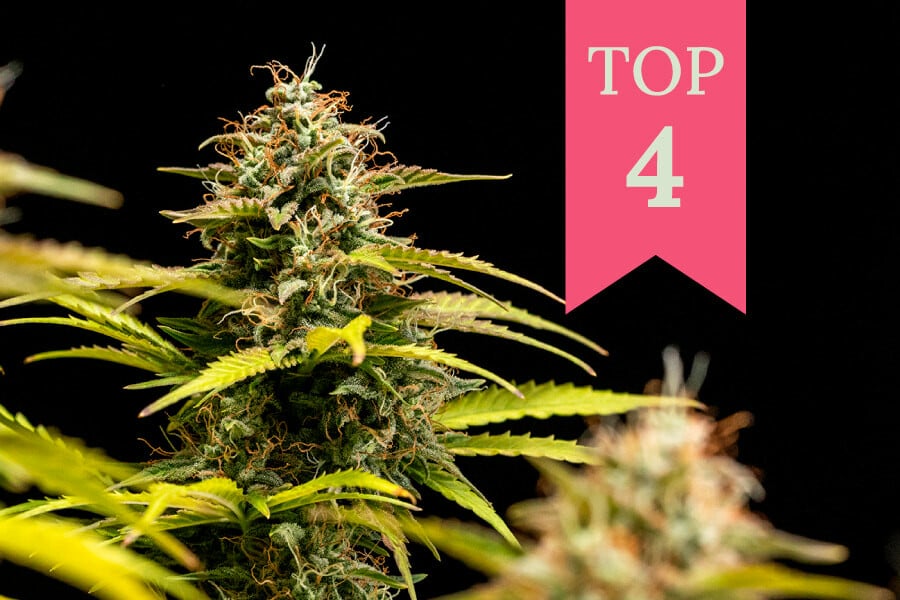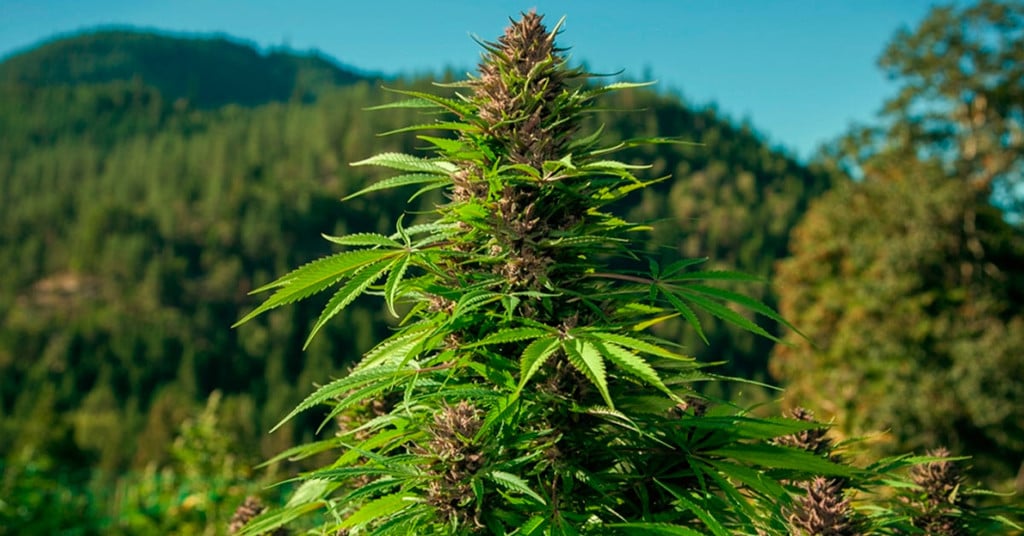.
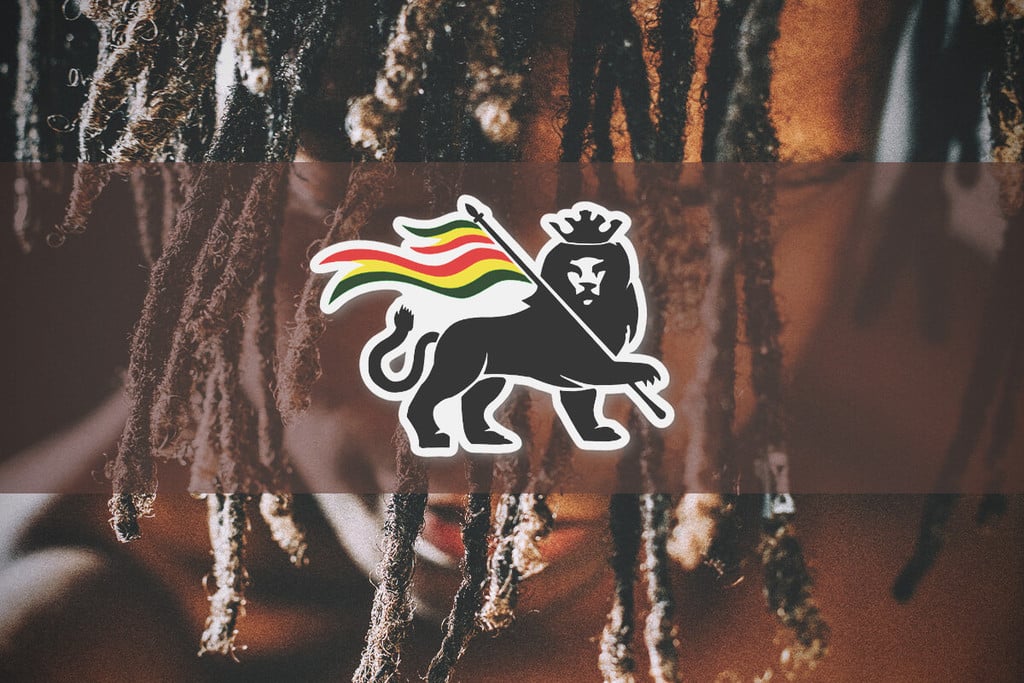
Rastafari: History, Beliefs, and Cannabis Use
Many people associate Rastafari with cannabis, reggae, and freedom. While these factors are important in the religion, the belief system goes much, much deeper. From Ital diets and its different mansions to a rich history, this relatively young religion involves various spiritual practices and principles that draw adherents closer to nature.
There are an estimated 10,000 religions worldwide; aren’t humans fascinating? All of these belief systems have distinct views of reality and creation, and how people should live out their lives. Among them, Rastafari stands out as a unique worldview that has exerted a powerful influence over culture, music, and the cannabis community as a whole.
At surface value, many people assume the belief system revolves around weed and little more. However, even a brief glance under the hood reveals a rich and complex worldview rooted in an Abrahamic foundation, alongside Christianity, Islam, and Judaism. Below, you’re going to discover everything you need to know about Rastafari, from its origins and practices to prominent figures and the use of cannabis as a sacrament.
Contents:
What Is Rastafari?
Much more than dreads, weed, and reggae, Rastafari is a monotheistic religious movement that emerged in Jamaica in the 1930s. The worldview has roots in the Abrahamic faiths and views the Bible as holy scripture—particularly the Old Testament.
However, unlike Christianity and Judaism, Rastafarians interpret the Bible in their own way and reject many of the Biblical teachings of the West. For example, many followers of the religion view themselves as the true Israelites and place a lot of emphasis on the book of Exodus as a metaphor for the mass displacement of Africans from their home continent during the Transatlantic Slave Trades.
Followers of Rastafari also hold varying views on Jesus Christ. Some view him as a black prophet who fought against oppression, whereas others reject the traditional Christian view of Jesus altogether. Instead, Rastas view Haile Selassie—an emperor of Ethiopia—as a reincarnation of Jesus Christ and the embodiment of Jah (the Rasta name for God) on Earth.


Why Rastafarians Smoke Weed
The Rastafarian use of cannabis, or “ganja”, as a sacrament has had a significant effect on various cultures. Enter any coffee store, dispensary, or cannabis club, and there’s a high likelihood that you’ll come across the Rasta flag and blaring reggae music. But why exactly do Rastafarians smoke weed? The main reasons include:
- Sacrament: First and foremost, many Rasta use cannabis as a sacrament that helps them to open their minds to Jah. By using ganja, they’re able to reflect on their lives and the world they live in.
- Livity: The Rasta concept of livity describes a way of life that harmonises with nature. Cannabis fits into this picture as a completely natural substance; one much different from synthetic and processed mind-altering substances.
- Reasoning and meditation: Rastas smoke ganja during time spent together and alone. Some smoke the herb during community reasoning sessions where groups of Rastas smoke and discuss a range of matters, from philosophy to history and current events. In contrast, some Rastas use the herb when alone to enhance meditation.
Despite the sacramental status of cannabis within Rastafari, the herb remains controversial in Jamaica. But can Rastas smoke weed legally in the country? Things remain murky, but the government does recognize the sacramental rights of the religious group to the plant. Although Jamaicans are legally able to grow up to five plants per household for personal use, this hasn’t stopped rogue police from confiscating cannabis from Rastas and other community members.
Where Did Rastafarianism Originate From?
Rastafarianism emerged in Jamaica during the 1930s, catalysed by a prophecy of Marcus Garvey several years prior. As a prominent black political leader, Garvey had a deep-set intention of unifying displaced Africans and sparking an exodus back to their home continent. As a teacher of black pride and self-determination, Garvey foretold that “a black king shall be crowned in Africa, and he shall be the redeemer.” Following the coronation of Emperor Haile Selassie I of Ethiopia, Garvey and others viewed his prophecy fulfilled.
With Selassie as their crowned messiah, Rastas in Jamaica started laying the groundwork for their religion. The young religion quickly adopted the traditions of rural Jamaicans, who themselves practised a form of Christianity with a focus on the connection between humans and nature.
What started as a small and humble movement, based on the prophecy of Garvey and the crowning of Selassie, evolved into a much wider religious force in the following decades. Today, it’s estimated that over a million Rastas practise the religion all over the world in countries including Jamaica, the United States, Canada, the United Kingdom, several African nations, and South America.
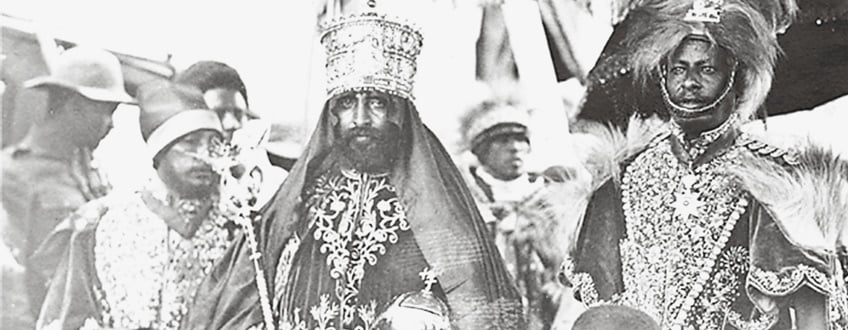
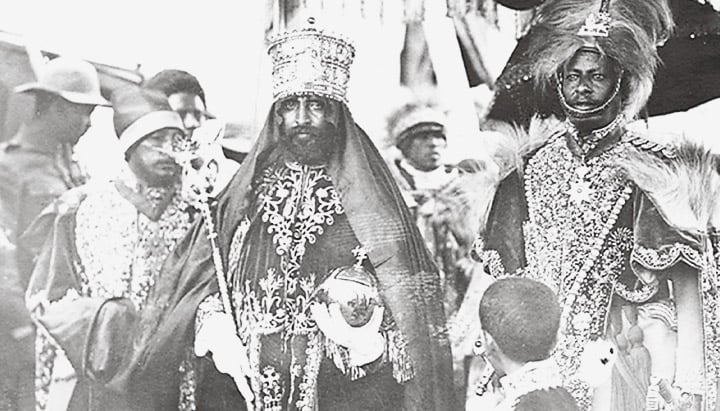
Prominent Figures In Rastafari
Several key figures help to propel the popularity and spread of Rastafari, from political leaders and emperors to musicians. Some of the most influential and important individuals of the faith include:
- Leonard Howell: Considered one of the founding fathers of the Rastafari movement, Howell started to spread a message during the 1930s that fused Christianity with Garvey’s philosophy. His preaching gained immense popularity among poor Jamaicans, and he went on to establish centers of Rastafari worship.
- Marcus Garvey: Recognized as one of the most important figures in the history of Rastafari, Garvey’s predictions earned him the status of a prophet among some followers; his views on African heritage and black pride helped to lay the foundations of the thriving Rasta culture that would emerge in the future.
- Haile Selassie: As Emperor of Ethiopia from 1930–1974, the crowning of Selassie fulfilled Garvey’s prophecy; most Rastas considered him a messiah and the incarnation of God on Earth. Like Garvey, Selassie also advocated for African unity, and his teaching had a huge influence on Rasta culture and religion.
- Bob Marley: We know this guy doesn’t need an introduction! Known widely for his upbeat and meaningful reggae music, Bob Marley played an important role in spreading the message of Rastafari across the entire world. Themes of resistance, peace, and love permeate his music.
Rastafari: A Brief Timeline
Now that you’re aware of the most prominent figures throughout Rastafari history, you’ll get a deeper understanding of the religion by grasping some of the key moments from the religion's inception to the current day. The most important events include:
- The prophecy of Marcus Garvey (1920s): Before the birth of Rastafari as a religion, Garvey foretold the crowning of a black king who would unite the African people, emancipate them, and lead them home.
- Haile Selassie I crowned Emperor (1930): Selassie received the crown after the passing of Empress Zauditu. This moment marked a turning point in Ethiopian history, and Selassie’s desire to abolish slavery and drive African unity made him a key candidate for Garvey’s prophecy.
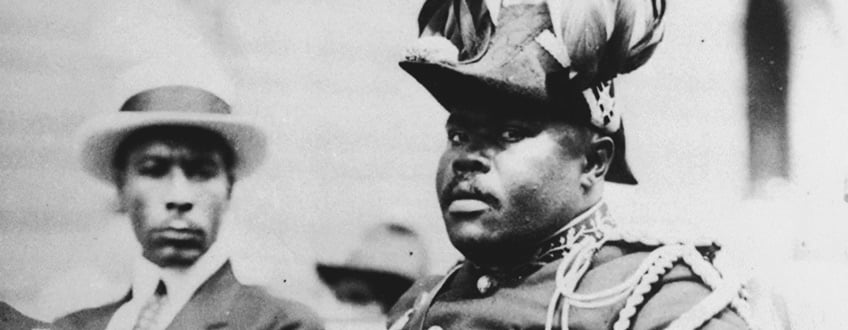
- Leonard Percival Howell Established First Rastafari Branch (1935): Howell established the first Rasta community in his country of Jamaica, named Pinnacle. Here, Rastas found a place to live out their religion together away from the pressure and allure of the external culture.
- Mussolini invades Ethiopia (1936): Following the annexation of Ethiopia by Italian dictator Benito Mussolini, many Rastas started to see signs of a coming apocalypse. Viewed as a direct attack on their faith, holy land, and messiah, the Rasta community rallied and performed protests against the invasion.
- Selassie’s exiled government (1936—1941): Unwelcome in his occupied empire, Selassie and his government sought refuge in London, England. Here, the government still held the favor of the Rasta community and maintained its political legitimacy.
- Allied coalition retakes Ethiopia (1941): Led by British forces, an alliance made up of Ethiopian resistance fighters, and soldiers from Canada, the United States, and other countries liberated Ethiopia. When the dust settled, Selassie became emperor once more; this victory greatly empowered the Rastafari movement.

- Selassie visits Jamaica (1966): Rastas of Jamaica had the experience of meeting their Messiah when Selassie visited the country. This historical moment helped to bolster Jamaica’s position as an important location in the Rastafari movement and cemented a close bond between the country and Ethiopia.
- Selassie removed as Emperor and passed away (1974–1975): After overcoming hostility in the past, Selassie’s empire fell victim to a Marxist coup, and Selassie himself died in suspicious circumstances shortly afterwards. This sent earthquakes through the Rasta community; some continued to view Selassie as a holy figure, whereas others turned their attention towards other leaders in the movement.
- Bob Marley Baptised (1980): After creating legendary music that spread the Rasta message through the world, Marley ended up becoming baptised in the Ethiopian Orthodox Church. While some Rastas respected this decision due to affection towards Ethiopia, others viewed Marley’s baptism with disdain.

What Rastafarians Believe In
Pinning down exactly what a Rasta believes can be a tricky task. Why? Because beliefs and traditions vary between different Rasta groups. However, many of them share the same core worldview, which involves the following:
- One true God: Rastas believe in a monotheistic God, referred to as Jah, who created the universe.
- Living righteously: Rastas believe in living a righteous life, with an emphasis on the virtues of love and respect, and the rejection of greed and materialism.
- Creation: Nature holds a sacred place in Rastafari, as it’s the handiwork of Jah.
- The afterlife: Rastas believe that the soul continues to live eternally after the physical body perishes.
- Marriage: Marriage and family hold prestige in Rastafari, and Rastas promote the idea of raising a happy and nurtured family.
Rasta teachings also emphasize Zion and Babylon as two opposing forces at work in the world. Zion refers to Ethiopia as a spiritual homeland characterised by freedom, hope, and redemption. In contrast, Babylon represents evil, oppression, and racism.
The Mansions of Rastafari
Core beliefs aside, various factions or “mansions” of Rastafari differ in other views. Some of the main mansions that make up the faith include:
- Twelve Tribes of Israel: This mansion of Rastafari is largely oriented around the idea of the twelve tribes mentioned in the Bible. In Rastafari, each tribe features its own musical note and color and has a unique gift to offer to the larger community. This faction practices and preaches the importance of love and brotherhood.
- Bobo Shanti: Strongly tied to African cultures and identity, this mansion values discipline and order; members typically wear a traditional dress that includes a robe.
- Nyahbinghi: As the oldest mansion of Rastafari, this faction focuses on the teachings of Marcus Garvey, and uses drumming and chanting in worship.


Livity: A Key Concept of Rastafari
The Rasta concept of livity sums up the key tenets of the religion and how they look when practised. The term refers to a way of living that strives towards love and harmony with oneself, the community, and nature. Striving for livity not only revolved around spiritual practices but also very physical ones.
Livity calls Rastas to live a simple life that is deeply embedded in nature. As well as rejecting the pull of materialism, it promotes physical activity, prayer, meditation, and other lifestyle factors.
The way of life that treads the path to livity also involves an Ital diet. So, are Rastas vegan? It depends. An Ital diet aims to assist physical and spiritual well-being, but the diet itself can differ from person to person. Some Rastas include animal products in their diet, whereas others adhere to a stricter approach that includes only organic and locally grown plant-based foods.
Why Do Rastas Wear Dreads?
Many Rastas sport long dreadlocks; a hairstyle that has become iconic across the world for its association with the religion. Far more than mere fashion, Rastas grow and wear dreads as a symbol of their religion. They view the hair, just like all things created by God, as sacred. Root-like dreadlocks also symbolise the African roots of many Rastas.
The Rastafari Colors of Livity
What many people know as the Rastafarian flag contains three iconic colorful bands. Each of these colors represents a key part of Rasta culture. They include:
- Red: This color represents the blood spilt in the struggle for liberation, as well as the life force of the Rasta people.
- Gold: This color signifies the abundance of Africa, as well as the warming sun that shines above the continent.
- Green: Fertility, growth, agriculture, and nature. This color represents the luscious nature of the Earth we call home.
The Jamaican Steam Chalice as an Ital Approach
Just as many Rastas choose to adhere to an Ital diet, they also apply this concept to the way they use cannabis. The Jamaican steam chalice encompasses Ital concepts and serves as a natural way to use ganja. Made from coconut, bamboo, and clay, steam chalices are a low-tech way to vaporize buds. They deliver cannabinoids and terpenes using low temperatures that don’t combust plant material like blunts, joints, and bongs.
A Look Into The Rastafari Movement
You took a deep dive into the world of Rastafari, and now have a better understanding of a religion and culture that has left a large and meaningful imprint on the cannabis space. Despite a relatively small following, Rasta culture has also influenced music, food, and lifestyle approaches across the entire world. The sacramental use of ganja certainly makes the religion stand out, but it’s not the only factor that makes the belief system unique. From spiritual practices and principles to diet, Rastafari features tenets that immerse adherents in the natural world.




























